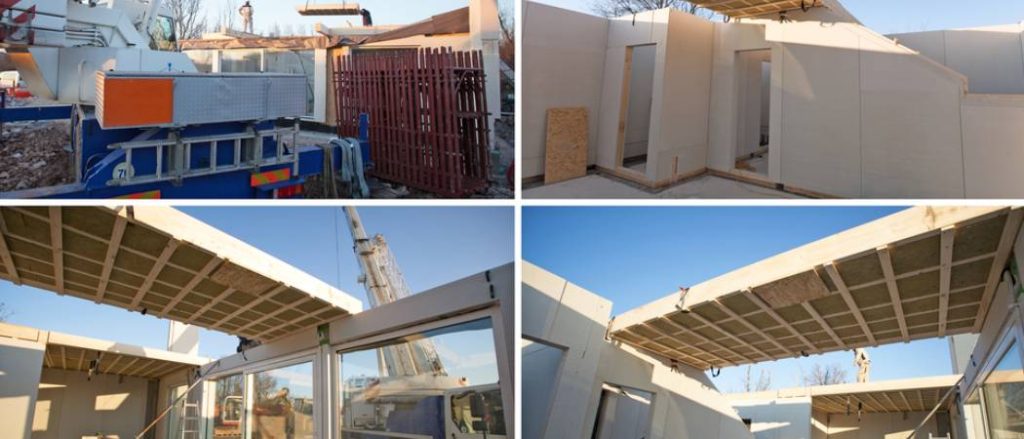As our loved ones age or experience mobility issues, providing a secure and comfortable living environment becomes a primary responsibility. Recently, CNBC has also reported that U.S. elderly and disabled population faces insufficient affordable housing for their needs.
That is when we can also consider modular homes, cost-effective and energy-efficient alternatives to conventional housing that can better accommodate the specific needs of disabled or senior citizens. They are also found to improve the quality of life.
Our article will discuss modular homes for those with physical limitations or older adults and how they cater to specific requirements with thoughtful design and functionality.
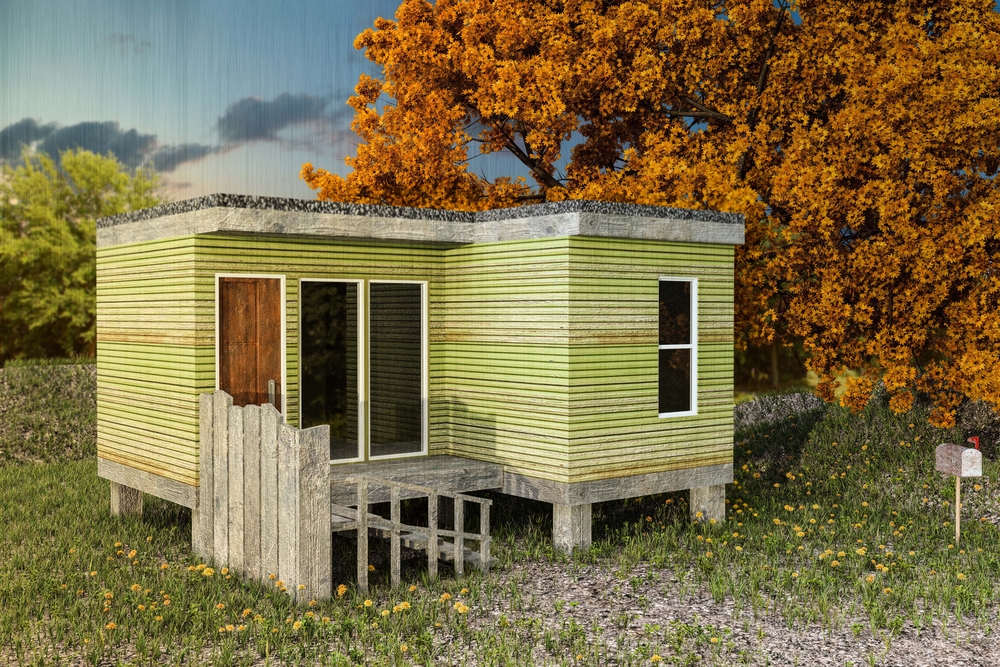
What is a Modular Home?
Modular homes, sometimes known as prefab homes or pre-manufactured homes, are constructed off-site in a factory.
After all the house components are built separately, they are transported to the final placement site, where the house is assembled. These homes use the same materials and pass the same regulations as site-built homes.
Benefits Of Modular Home
Because of its adaptability, modular homes are great for elderly family members and mobility handicaps. Among the many advantages are
- Safety: These homes can pre-include accident-prevention features such as grab rails, non-slip flooring, and well-lit pathways.
- Accessibility: With many features, such as handicap ramps, wider entrances, and accessible bathrooms, homes can be modified to accommodate a disabled family member.
- Convenience: All living spaces can be located on a single level, eliminating the need to climb stairs and making it simpler for seniors to navigate.
- Energy Efficient: Remodeled homes typically have higher energy costs due to older construction. On the other hand, modular homes are energy-efficient and often Energy Star Qualified.
- Custom Design: They enable customized adjustments to meet specific needs, ensuring the limited space is functional and comfortable.
Design Considerations
When preparing your modular home layouts, all factors may affect how to use the home now and for the potential future handicap. Among the necessary adjustments are
One-Story vs. Two-Story Homes
Although single-story homes are famous for simple accessibility, two-story homes can be adapted by installing chair lifts or elevators for people with limited mobility requiring a wheelchair/walker.
Open Floor Plan
Modular homes offer open-concept floor plans suitable for mobility impairments, providing interior wheelchair mobility and additional space.
Accessible Bathrooms
Here are some key features commonly found in accessible bathrooms in prefab homes,
- Space: Bathrooms should be spacious and open, providing wheelchair-radius access to the toilet, bath/shower, and sink.
- Walk-In Showers: They typically have walk-in showers with a low or absent threshold and adjustable shower heads, allowing wheelchair and walker users easy entry and exit.
- Toilet Height: Comfort-height toilets, also known as ADA-compliant toilets, are used that are better than other alternatives providing ease.
- Accessible Vanity and Storage: Roll-under vanities are best to provide space and access to conveniently adjusted storage. What other vanity options can be considered? Look at this article here to learn about accessible vanities.
- Lever Handles: Prefab homes have easy-to-use lever-based handrails.
Also, sturdy grab bars provide stability and support for seniors and mobility-related individuals near showers, bathtubs, and toilets.
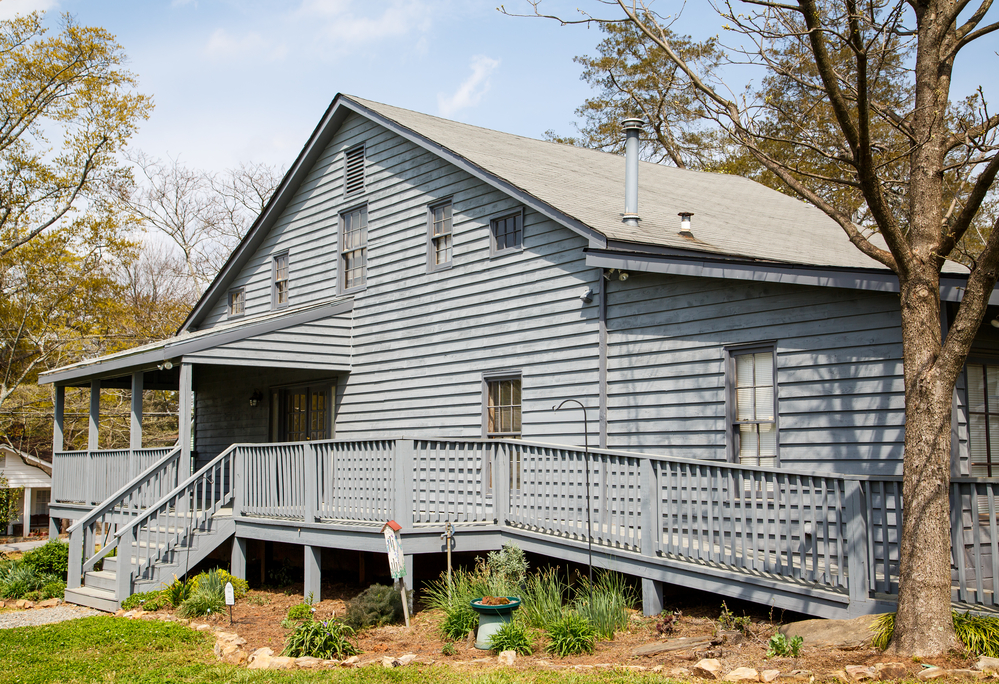
Accessible Kitchens
Modular homes offer accessible kitchens designed for the elderly and handicapped, focusing on functionality, safety, and ease of use.
Key features include an open layout, lower countertops with kneehole access and sinks, pull-out shelves, lever handles, and reachable appliances. Non-slip flooring and lighting ensure safety and visibility.
Wheelchair Accessibility
Modular homes usually prioritize wheelchair accessibility for individuals with mobility challenges.
Ramps and Entryways
Entryway ramps provide barrier-free access for wheelchair users, tailored to modular home dimensions for smoother access. Even passage Doors with wider entryways and hallways allow wheelchairs and walkers to navigate the home quickly.
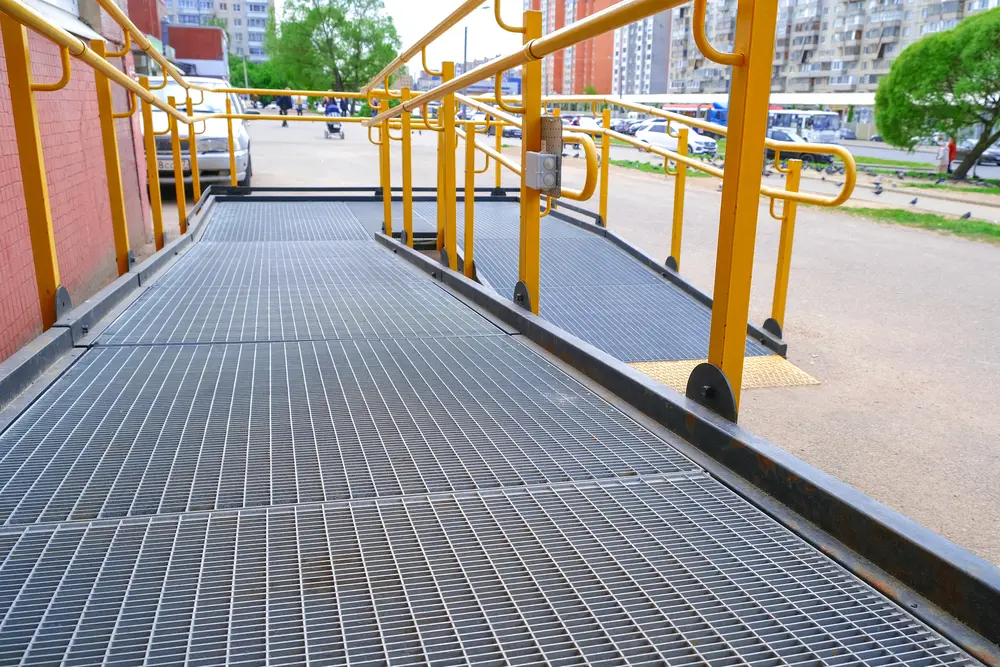
Residential Wheelchair Lifts
Residential lifts can be installed in homes with high entries. They are accessible to all guests and do not take up much space. Some manufacturers can even construct houses with lift-ready entry porches. However, The only drawback is that elevators are inoperable during a power outage.
Safety Features
Implementing safety measures such as slip-resistant floor plans, adequate light, secure grab bars in the kitchen, and entry and exit pathways is one of the essential considerations for disabled and elderly individuals.
The above video shows a modular home tour with all the accessible facilities and wide entry and exit doors.
The video discusses accessibility options like wider doors, handrails, lower countertop height for wheelchair access, and floors with hardwood or vinyl plank with a handicap ramp on the entry and exit door.
Real-Life Examples
Erica shares her experience that her mother lived in a manufactured home built for seniors. The porch landing of the house was wide, and the light switches were installed approximately lower because some seniors use walkers and have problems reaching them. It looked different at first, but it was efficient- Erica added.
In the video, Doreen Sim shares how she got an affordable modular home with all her particular requirements due to her degenerative spinal issue.
Miranda, a 72-year-old Alzheimer’s patient, lives with his journalist son Adam. She is modest and doesn’t want others to care for her. Adam considered moving her to a nursing home but got advice from an interior designer about going for a modular home. He went for it and was happy to discover numerous benefits he had not previously considered for his new home.
Where to Find a Modular Home?
There are US-based companies that offer disabled and handicapped modular homes and services, such as Accessible Space, Inc. (ASI), Wheel Pad, Factory Direct Modular Homes, and Home Care Suites, which can help you build a perfect home or reconstruct your existing home according to handicap needs. The best is to look for companies with experience building homes for disabled or senior citizens.
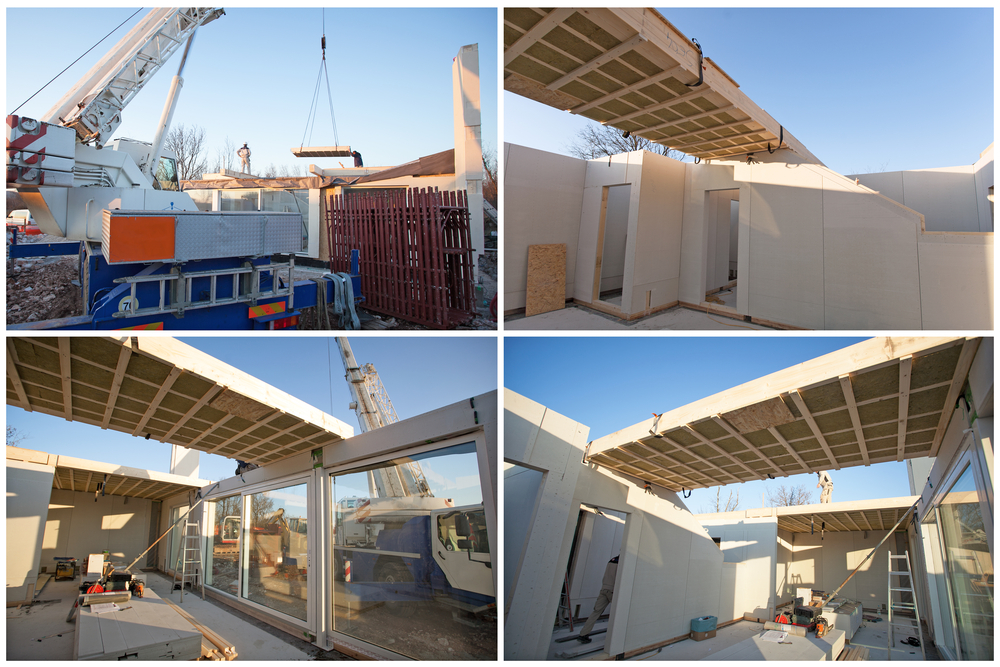
Conclusion
Accessible, safe, and customizable options in modular homes for the elderly and disabled family members are fantastic. Thanks to their well-thought-out design, quality built, and many adjustments, these houses allow people with mobility issues to comfortably enjoy their lives.
